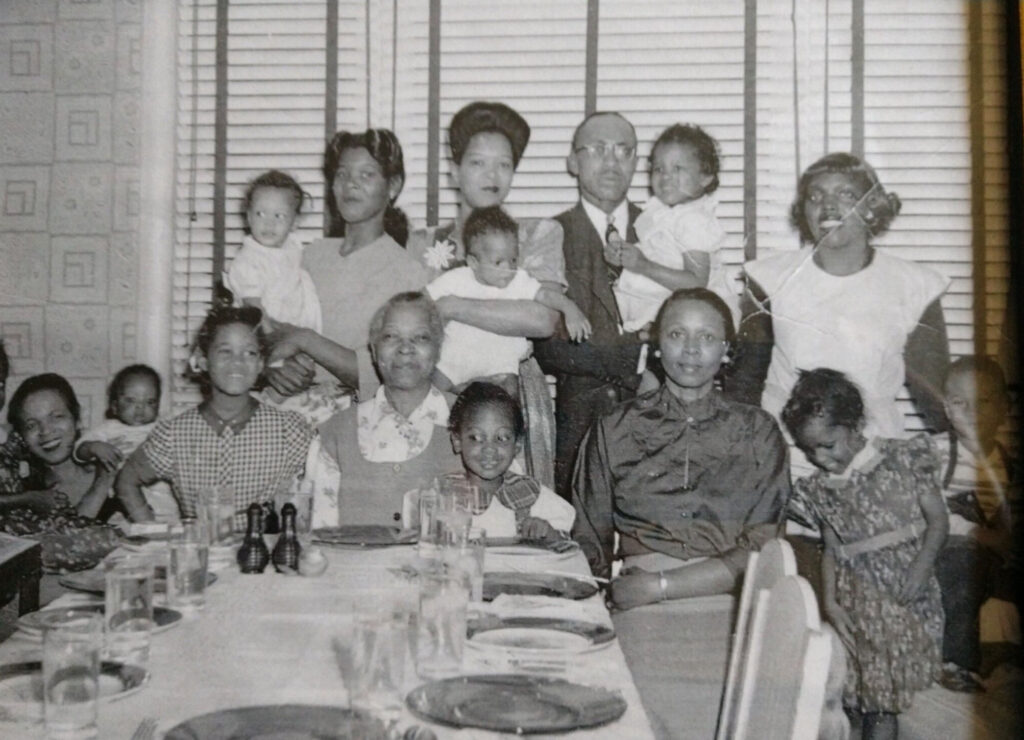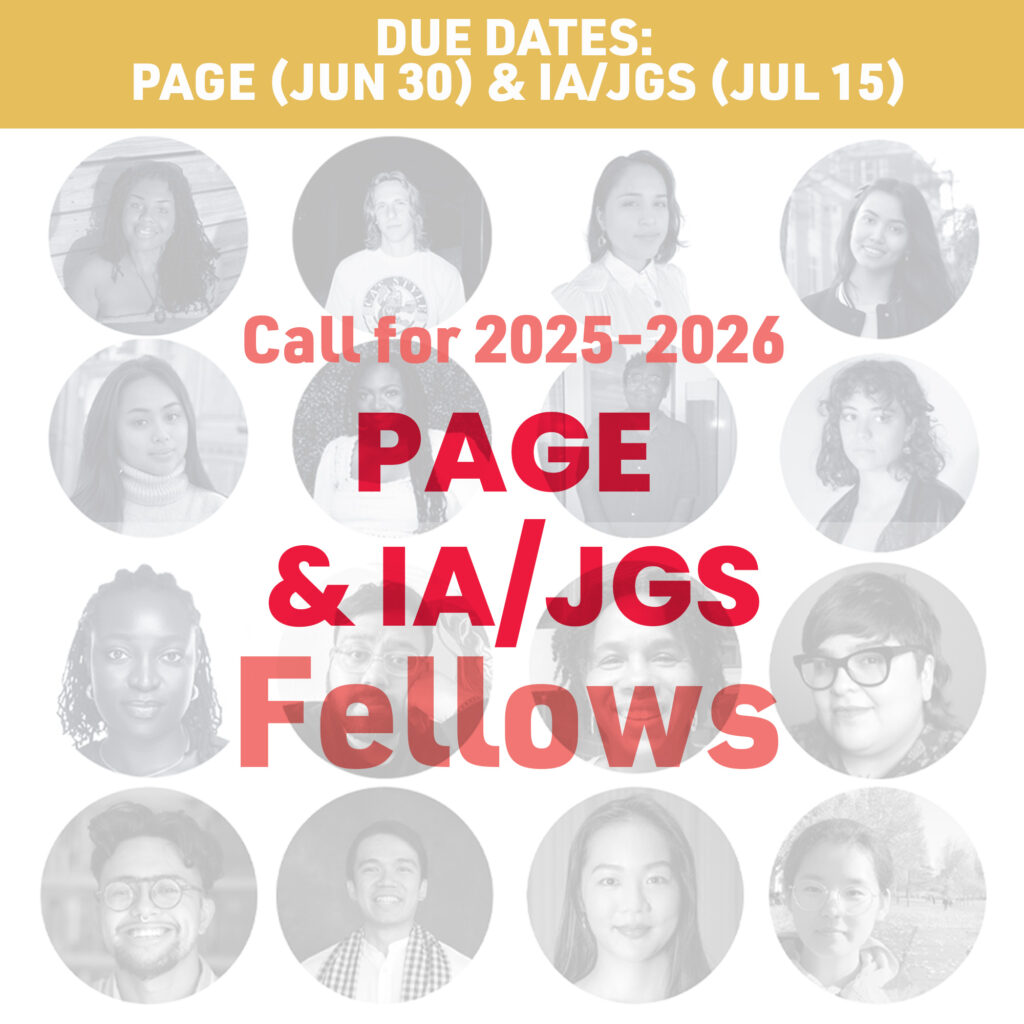UIC-Partnerships for Anti-racist Campus Transformation (PACT)
“A Driving Force for Culturally and Structurally Aware University-Community Partnerships”
Jennifer Brier, Ph.D., Founding Community Collaboration and Engagement Faculty Fellow, 2021-2022, Director and Professor, Gender and Women’s Studies/University of Illinois Chicago
Gabriela Peña, MPH, Associate Director, UIC-Partnerships for Anti-racist Campus Transformation/University of Illinois Chicago
Alonzo Zamarrón, Graphic Designer/University of Illinois Chicago
Abstract
UIC-PACT (Partnerships for Anti-racist Campus Transformation), a cross-campus action-oriented group, formed in the spring of 2020 to coordinate University of Illinois Chicago’s efforts to address community partners’ articulated needs during COVID-19. The collection of faculty, staff, and students at our urban land-grant and Minority Serving Institution (where 60% of students are eligible for Pell funding) recommitted to advancing racial equity through institutional transformation. Over the past year, our interdisciplinary group has learned how to catalyze better institutional change at the intersections of research, service, and teaching. We have secured seed funding for faculty to collaborate and share power with community scholars and researchers. At the start of 2021, we established an institutional grant application that seeks to sustain community-first academic partnerships while also naming how UIC policies and procedures contribute to structural harm in Chicago communities.
Project Narratives
Background
A few weeks after the start of the COVID-19 pandemic, the University of Illinois Chicago’s Partnerships for Anti-racist Campus Transformation (PACT) initiative formed as a cross-campus workspace where faculty, staff, and students could respond to the racial inequities exacerbated and laid bare by the pandemic. The social movements and protests demanding racial justice and an end to anti-Black racism of 2020 were also an ongoing critical impetus for our work. We knew that the only way the University of Illinois Chicago (UIC) could be an authentic community partner for our neighbors was to resist our business-as-usual practices, wherein universities swoop into communities claiming to have the answers. Instead, we would name and transform the structural inequities existing within the walls of UIC. Within a few meetings held over Zoom, we called three practices, all active verbs, that would define our work: Listen, Activate, Transform.
One of our original guiding principles was to examine the University’s structure before undertaking further community engagement work. Looking inward is always difficult, and that is no different for UIC. UIC is an extraordinarily diverse institution with a long history of working with proximate communities on the surface and even beyond. We are a Research 1 university with grant expenditures of $416.6 million as of 2020. We are an Asian American and Native American Pacific Islander and Hispanic-Serving Institution. In addition to having no racial or ethnic majority, our student body is profoundly working class, with almost 60% of our students eligible for Pell Grants. Not captured in these statistics is that UIC has not been able to significantly grow our Black student enrollment, which consistently hovers around 8%. UIC still has much listening, activating, and transforming to increase Black student enrollment rates and support Black and Brown students already attending the university.
Listen: Opportunities for Change
UIC is one of three universities at the University of Illinois, a sizable state-wide system with a bureaucratic history. As part of that system, UIC has rules that control educational, research, and working life on the campus. These systems often prevent antiracist work from happening on campus. The consequences of these systems, set against the backdrop of the pandemic, and overt global displays of racism and xenophobia, drive our actions. The people attending PACT meetings every Friday afternoon demanded that UIC should not continue to perpetuate the root causes of these inequities. From the start, PACT members shared a mutual understanding that racism is at the root of how the pandemic disproportionately burdens Black and Latinx communities. PACT’s long-term goal is to address systemic racism and anti-Black racism and transform UIC structures and norms to cultivate community-oriented scholarship and research.
Rooted in our principles of listening, activating, and transforming, some of PACT’s first actions were to live out our principles by asking ourselves, “how can UIC support our community partners in a meaningful way?” To begin to answer, PACT joined other university partners such as the School of Public Health’s Collaboratory for Health Justice initiative (CHJ) and the Office of Community Engagement and Neighborhood Health Partnerships (OCEAN-HP) to help organize Latinx and Black Think-and-Do tanks to provide a forum for UIC partners to listen to the needs, challenges, and successes of local communities in addressing COVID-19.
Through this process of listening, PACT, CHJ, and OCEAN-HP struggled to match community needs with internal university resources. We faced challenges related to the transfer of funds to community partners, the limitations of using public university funds to provide support to community partners (sometimes called the difference between research and public service), and barriers in the Human Resources enterprise to hiring community members to serve as community scholars. Identifying and detailing these structural challenges has been key in PACT’s discussions about campus transformation, equity, and antiracist praxis. As PACT faculty member Jennifer Hebert-Beirne explains, “UIC PACT members know of UIC’s potential as an agent of social change. Now is the time to recognize the ways in which UIC has been complicit with structural violence experienced by our community partners and rectify our practices and protocols to align with principles of health justice.”
Activate: Early Achievements and Impact
PACT has solidified a role in transforming UIC to better respond to the needs of our community partners during the pandemic and in helping the university acknowledge its complicity in systemic anti-Black racism. We have accomplished this by sustaining the collective commitments of our dozens of members. Early achievements of PACT include our institutionalization within the Office of Diversity, Equity & Engagement, our funding of a full-time staff member, and our ability to fund five COVID-19 and Racial Justice Pilot Projects. Given our organic nature and limited resources, PACT’s ability to maintain member involvement at committee meetings, all of which have been on Zoom, helps drive PACT’s mission.

Impact and transformation are at the core of PACT’s mission. We have collectively produced a strategic plan. In the preamble, we state: “We understand this work to be long-term and are committed to being mission-driven and finding funding to support our efforts.” We own up to advancing our understandings through anti-racist praxis and through garnering institutional support for these practices. Being institutionalized in the Office of Diversity, Equity & Engagement has allowed greater credibility and visibility for PACT. Since being institutionalized, PACT has a webpage on the Office of Diversity, Equity & Engagement website, a full-time Associate Director (Gabriela Peña, MPH), and a Community Collaboration and Engagement Faculty Fellow (Jennifer Brier, Ph.D.). Together, these components of institutionalization have come to form the backbone of PACT and have set the stage for the long-term presence and continued impact of our efforts. Robust community engagement can no longer be an afterthought for our university scholarship and research practices — the time to invest is now.
Another visible representation of PACT’s impact has been through our assistance in shaping and supporting two UIC neighborhood centers on Chicago’s South and West sides — one in Auburn-Gresham and one in Greater Lawndale. Since the summer of 2020, UIC has recommitted to accountability in advancing racial equity, and our campus leadership has agreed to nominally fund these neighborhood centers for five years as an investment to address community needs around employment, education access, and other expressed needs. In alignment with the Office of Community Collaboration, a campus unit created in the fall of 2021, PACT has helped gather data from community leaders and key stakeholders to identify internal resources: from capacity-building opportunities to other collaborative opportunities to bring health justice labs to the centers. While the launch of the centers is forthcoming, PACT has been a force of collaboration, information-sharing, and increased capacity for these community centers. Through similar collaborations, we hope to expand our impact not only as PACT but as a more significant part of UIC’s recommitment to our community partners.
While PACT’s impact has affected our collaborations with community partners, PACT has also demonstrated that enacting change on campus begins and ends with collaboration. It begins with information sharing as a means of breaking through siloed approaches to advancing change. It is through collaborative efforts that change takes place. To this end, PACT has and will continue to lead by example and work towards fostering cross-campus and community-based collaborations to help change agents yield the strongest opportunities for transformation.
Alongside collaboration, PACT reimagines what academics perceive and understand as knowledge producers. Knowledge of complex problems and complex solutions must be critically examined. PACT’s work radically expands our understanding of knowledge production by actively seeking out how we may reallocate power and resources to elevate knowledge producers that are too often left out of academic conversations. PACT understands that knowledge producers exist and thrive outside of the academy and other traditionally accepted sources of information.
Transform: PACT Pilot Awardees
Like many campus-wide entities, PACT struggles with organizing internal structures of communication, subcommittees, and the complications of unpaid labor (in the form of faculty and staff “service”) to keep PACT moving forward. Through trial and error, we have developed strategies to unlock institutional resources, primarily through being able to hire a full-time Associate Director (AD) to help maintain our momentum. Hiring a full-time AD also showed the university that it needed to invest more in the people and mission of PACT if it was to sustain PACT’s cross-campus reach. PACT has been a central partner in cross-campus conversations about barriers, policies, and practices that are complicit in racism. These conversations have named our systems that enable racist praxis and university-centric community engagement practices. These include things like inaccessible vendor information forms and contracts that are burdensome to community partners and limitations around job descriptions that community partners might use to work in collaboration with us. Despite these challenges, PACT and our grantees yielded these opportunities to inform and shape our agenda of how we can help our partners, internal and external, better navigate potential barriers to their community-engaged research and scholarship.
In the fall of 2020, PACT — in partnership with campus partners, the Center for Clinical and Translational Science (CCTS), the Institute on Race Research and Public Policy (IRRPP), and the Institute for Policy and Civic Engagement (IPCE) — built a fund to support a series of pilot projects led by faculty across the University and many community partners. We held an open competition and received more than a dozen applications. We funded five projects: 1) “Grow Your Groceries Evaluation,” a collaboration between Nursing Professor Saria Lofton and Openlands that focuses on food justice; 2) “Melanated Midwives,” led by Black scholars and midwives, Karie Stewart and Pamela Pearson, seeking to support innovative community-based research to address structural racism in healthcare; 3) “Equity and Transformation (EAT) Collaboration,” a collaboration between Richard Wallace, founder and executive director of EAT and Professor Barbara Ransby, Director of UIC’s Social Justice Initiative, to design, implement, and share research around issues of health, police reform, prison, and police abolition; 4) “Winthrop Family Oral History Interviews,” by UIC scholars Gayatri Reddy and Anna Guevarra, with Uptown neighborhood organizers to trace the story of a block and its residents over the course of the 20th century; and 5) “Chicago 400 Alliance” led by Terrance Chism, President of Chicago 400 and UIC professor Laurie Jo Reynolds to support national advocacy efforts led by formerly incarcerated people with convictions. Each project underscores multi-directional, community-driven partnerships from across Chicago, rooted in social justice efforts. From health inequities faced by Black birthing people to education and advocacy efforts to remedy homelessness caused by residency restrictions, PACT’s Pilot Awardees are concrete examples of PACT’s impact throughout UIC and the community.

Not enough attention or importance is paid to elevating and allocating resources to support these collaborations. Therefore, PACT has, especially through our Pilot Awards, maintained our commitment to listening and learning from community producers of knowledge. Along with continuing our work of supporting knowledge producers beyond academy walls, PACT is continuing to confront and change institutional forms of power and privilege that have traditionally marginalized publicly engaged and activist scholarship. The very essence of our coming together directly confronts institutional forms of power and privilege. We actively engage our members to have necessary conversations about what policies, practices, and norms are complicit in racist praxis, but most importantly, how we can use our existing institutional knowledge and the knowledge of others to combat these phenomena. For example, in our second year, we will focus on how to transform the human resource enterprise at UIC that creates significant obstacles in employing or contracting with community-based partners.
Through PACT’s investment in elevating the work of our Pilot Projects and their community partners, we can shine a light on community expertise while also aiming to bring greater attention to how we can continue to support community art, work, and progress. Each Pilot Project exemplifies the power of community voices and their role as change agents in tackling more significant systemic and structural issues. They all underscore the necessity for universities to acknowledge and amplify research, scholarship, and activism of and from the community.
We have many examples of this from within the PACT network: President Terrance Chism and members of the Chicago 400 Alliance seek transformative justice in reducing and abolishing public conviction registries, banishment laws, and public exclusion zones through advocacy and education. Karie Stewart, UIC faculty, Midwife, founder and CEO of Melanated Midwives, and her team, and UIC faculty and nurse-practitioner Pamela Pearson have developed a new and just paradigm of maternal health care for and by Black people. Equity and Transformation’s Director Richard Wallace’s organization with UIC’s Social Justice Initiative was vital in changing ideas about where intellectual production happens. Professor Saria Lofton’s evaluation work with Openlands and Chicago Grows Food helped her team learn that many grow kit users already had prior knowledge about growing food. Professors Gayatri Reddy and Anna Guevarra documented the power and resistance of racist restrictive covenants faced by Black residents of Chicago’s Winthrop Avenue. Power and knowledge have already existed in these communities, and each project showcases this. We, as academics, must put in the effort to be active listeners and learners alongside our community partners.
Too often, profits are prioritized over shared representation and decision-making, even in the public university. PACT seeks to reimagine and restructure how the university considers its priorities, decision-making processes, and community engagement practices to remedy this issue. When many decision-makers are placing racial equity and anti-racism at the forefront of their respective agendas, we believe that we must use this moment to dismantle our institution’s status quo to better reflect the needs and strengths of communities of color. Given this unique moment in time, PACT is a part of the people’s call for change and transformation — not out of wanting but a necessity.


